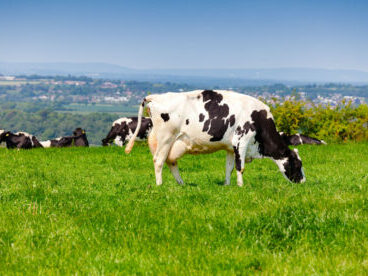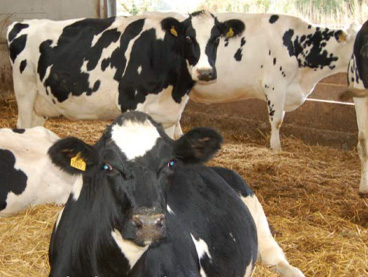Supplementing omega-3 fatty acids in poultry can help benefit immunity, skeletal and gastrointestinal development and fertility in broiler breeds.
Omega-3 fatty acids are essential for the health and normal physiological functioning of livestock and humans. However, these essential fatty acids, namely alpha-linolenic acid (ALA), eicosapentaenoic acid (EPA), and docosahexaenoic acid (DHA), are not produced endogenously and, therefore, must be supplied through the diet.
In human nutrition, research has shown that omega-3 fatty acids improve physiological and health outcomes during pregnancy, depressed immune function, cardiovascular disease, cancer and some mental and emotional conditions. In poultry, omega-3 fatty acids are proven to improve semen concentration and fertility, skeletal development, and egg production.
The global consumption of poultry meat and eggs has continued to accelerate in recent decades and is projected to increase by 13% between now and 2030. World egg production has also increased 24%, reflecting increasing consumption.
To keep up with this demand, poultry farmers continuously look to improve reproductive efficiency, rapid growth rates, superior feed conversion and cost-effective productive cycles. However, intensive breeding can encourage metabolic disorders, lowered immunity and insufficient skeletal development. Therefore, a sustainable strategy is required for breeder nutrition and management.
Supplementing omega-3 fatty acids in poultry can help benefit immunity, skeletal and gastrointestinal development and fertility in broiler breeds.
Increased egg production
Egg yolk is a vital reservoir of energy and essential fatty acids, including omega-3s, for the developing embryo. Research has reported a decline in late-stage embryonic mortality in fertile eggs from fish oil-enriched diets. This could be due to the improved incubation parameters as a result of the availability of the essential fatty acids. In effect, an adequate supply of omega-3 fatty acids through dietary supplementation and deposition in the yolk is pivotal in the development of metabolic and immune functions with long-term implications on susceptibility to metabolic disorders in poultry.
The enrichment in eggs is proportional to the amount of omega-3 fatty acids in the poultry diet. It can be an extremely novel nutritional strategy for enhancing their supply of human food. By fortifying livestock feed with fish oil or algae, the level of DHA can be increased by 20-fold in fish, 7-fold in chicken, and 3 to 6-fold in eggs.
Omega-3 fatty acids fed to breeder hens is taken up in the yolk and transferred to the developing embryo, where it is incorporated for optimal cell, tissue, and organ development. In particular, DHA imparts unique properties on cell membranes, which contribute to membrane plasticity, fluidity, and permeability that can boost the immune response in chicks.
Chicks newly hatched from eggs enriched with DHA will benefit from reduced proinflammatory eicosanoids, enhanced bone mineralisation, and modulation of the digestive tract’s morphological structure, which will prevent pathogenic microbial colonisation and infection.
Semen quality
Poultry semen is characterised by high concentrations of polyunsaturated fatty acids, particularly DHA, which provide fluidity and structural integrity of the sperm cell membrane. Researchers have pointed out that supplementing the diet of broiler breed roosters increases semen concentration and the percentage of viable cells that are normal.
During cryopreservation, which is a process involving freezing for purposes of preservation, fertility and quality of semen can be affected, and fatty acids are known to provide protection.
Skeletal development
Poor skeletal health and lameness in breeder hens is a major welfare and economic problem with a negative perception of poultry production worldwide.
Researchers at Bristol University, UK, reported a drop of more than 35% in bone breakage rates in free-range laying hens at weeks 50 and 62 when supplemented with Omega-3 fatty acids.
Omega 3 fatty acids in fertility:
EPA and DHA are the key fatty acids involved in fertility, specifically in altering the production of prostaglandin in favour of progesterone. Prostaglandin is the hormone responsible for the regression of the corpus leteum, which produces progesterone, the hormone required for coordinating the supply of nutrients for embryo development and pregnancy maintenance. Enhanced egg quality is also critical in embryo transfer programmes in animal breeding.
How can UFAC help?
UFAC has developed an innovative process for producing a variety of omega-3 supplements. They are rumen-inert and slow-release designed to improve the absorption of omega-3 fatty acids by the animal and uptake in the tissues. This technology provides an opportunity for niche markets for products containing greater amounts of omega-3 fatty acids without involving chemical treatment or coating processes that could be costly and risk product integrity.
UFAC’s omega-3 fatty acid supplement is designed to boost the health and fertility of all livestock. It is formulated to supply key fatty acids, including EPA and DHA, which are essential for growth, health, and fertility. Omega 3 supplement is suitable for incorporation into compound feeds and home mixes for all types of poultry.
omegapro supports health, vitality, growth and fertility in pigs and poultry. This palatable product supplies high levels of highly digestible amino acids as well as glucose and minerals.
algi40 omega 3 is a sustainable rich source of long-chain poly omega-3 fatty acids, Docosahexaenoic acid (DHA), Eicosapentaenoic acid (EPA) and Docosapentaenoic acid (DPA).
It is designed to enhance dietary intake of these essential fatty acids in order to promote animal wellbeing while helping improve growth, production, health and reproduction.
Interested in learning more about UFAC products? Fill out the form below, and a member of our team will be in touch with more information, or contact our Regional Business Managers directly.
Steve Willats
M: 07827 249157
South West and Wales
Richard Lapthorne
M: 07788 963 487
North England and Scotland
James Hastings-Molyneux
M: 07538 763 832
South East and Midlands


 Back to News
Back to News 



